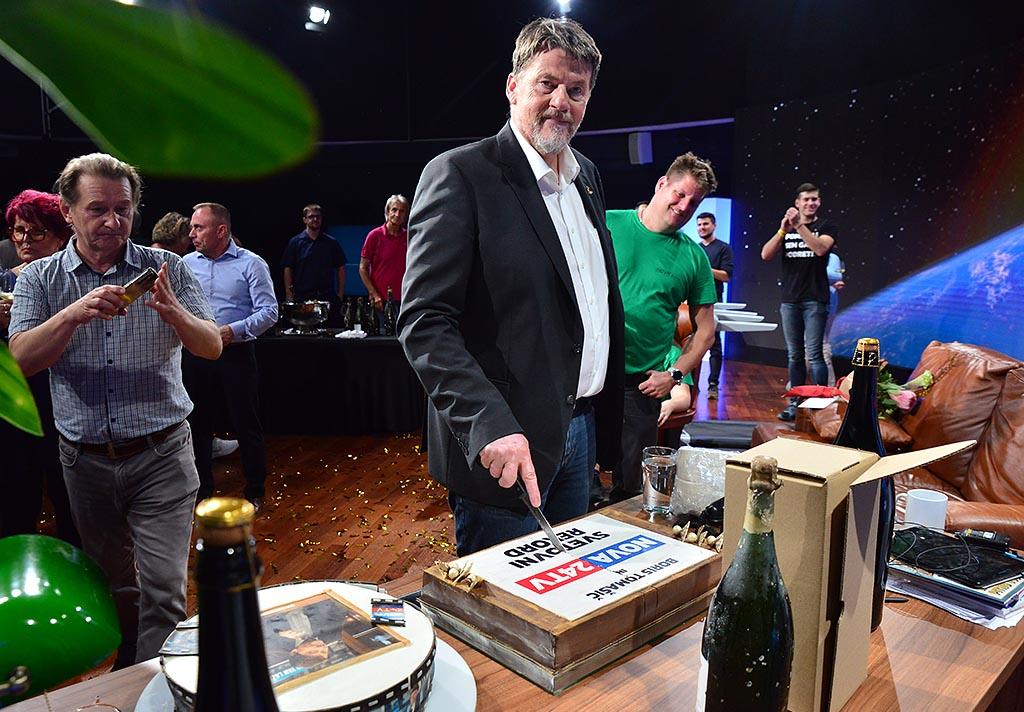By: Nova24tv.si
The host of the show Kdo vam laze and Guinness World Record holder for hosting the longest TV show in history, Boris Tomašič, will present his vision for the development of RTV Slovenia to the Commission for Human Resources and Legal Affairs today, on September 2nd. His vision is based on the expulsion of ideology and the establishment of meritocracy.
After the former CEO of RTV Slovenia, Zvezdan Martić, resigned at the end of May due to losing the confidence of the majority of board members, the RTV Slovenia Council approved the publication of a job vacancy for the position of CEO on July 11th. Besides Boris Tomašič, who applied for the position before the deadline a few days ago, the interim CEO Natalija Gorščak and the director of Radio Slovenia, Mirko Štular, will also compete for the position.
Andrea Bartole, the Chairman of the Commission for Human Resources and Legal Affairs, Organisation of Work, and Rules of Procedure, informed Tomašič that the RTV Slovenia Council received his application for the position of CEO on August 20th, and it was reviewed by the Commission for Human Resources and Legal Affairs, Organisation of Work, and Rules of Procedure. According to the STA news agency, the selection committee did not conclude its evaluation during the board meeting on whether the applicants met the criteria, so it was decided that all three candidates would be invited for an interview on Monday.
Tomašič has been asked to prepare a presentation of his vision for the development of RTV Slovenia, lasting up to 15 minutes. If he decides to use Microsoft PowerPoint for his presentation, he must inform them in advance. After the presentation, there will be an interview during the Commission for Human Resources and Legal Affairs, Organisation of Work, and Rules of Procedure in an extended session on Monday, September 2nd, 2024, at 5 p.m. in meeting room 52/V at Kolodvorska 2 in Ljubljana. Tomašič must also bring a certificate or proof from the District Court or other competent authority, not older than 60 days, confirming that he is not involved in any criminal proceedings, which was not included in the application documents.
Tomašič seeks to establish a system without favouritism
It is expected that Tomašič will emphasise the importance of removing ideology and establishing meritocracy in his vision. “The basic principle of any public media service must be that there should be no influence of any ideology in any part of it, let alone as a whole. Currently, one ideology prevails, putting ideas before professionalism. The result is the worst situation at RTV Slovenia since its inception. This needs to be addressed immediately; ideology must be expelled, and a meritocracy based on knowledge and dedicated work must be established,” Tomašič emphasises. He adds that it is essential for the public media service to be an open space for all different political views on society and the world. “None should be sidelined or prohibited. This applies to all genres and media within the system.”
Tomašič states that a system must be established where there is no longer favouritism, but only the capable and less capable, the effective and less effective, those with a lot of knowledge and those with less knowledge. “There will no longer be a place for the incompetent, ineffective, and those without knowledge. This applies regardless of political orientation. There should be no room for political activists on public RTV,” Tomašič further emphasises.
Given that the public broadcaster is known to be facing serious financial difficulties, many believe that the role of CEO at RTV Slovenia should be filled by someone with extensive management and media experience. Tomašič undoubtedly has such experience, but since it is known that he is not ideologically aligned with the current direction, it will certainly be interesting to observe the developments regarding his candidacy. However, the case of the previous management has shown that adherence to the “right ideology” does not guarantee results. Of the four members, only the worker’’ director, Franci Pavšer, remains in position, while all other members resigned after less than a year in office.
